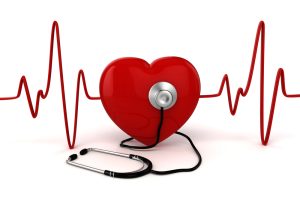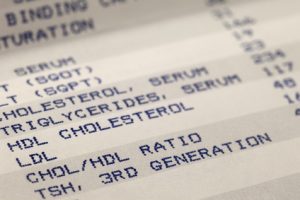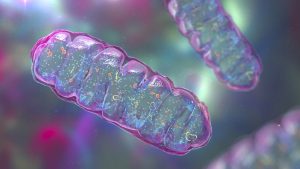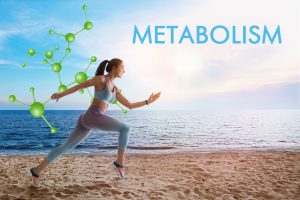 A Nutritional Approach to Cognitive Health
A Nutritional Approach to Cognitive Health
Understanding the relationship between nutrition and a child’s cognitive function is crucial. There are fundamental connections between dietary choices and brain health.
Understanding the Gut-Brain Axis
The back and forth communication between the gastrointestinal tract and the central nervous system travels mostly through the vagus nerve. The vagus nerve extends from the brain to various organs including the heart, lungs and digestive tract. It carries signals between your brain, heart and digestive system. It plays a vital role in cognitive function.
The enteric nervous system (ENS) often called the “second brain” is in the gut and helps manage digestion.
This system is made up of a network of nerves in your child’s digestive tract including the stomach and intestines. It controls things like muscle movements in the intestines, the release of digestive enzymes, and the absorption of nutrients. It also communicates with the central nervous system to regulate digestion. It coordinates the movements and processes that break down food and keep your gut working smoothly.
It significantly influences neurological function through beneficial bacteria that contribute to the production of essential neurotransmitter and neuromodulators. production and immune system regulation.
Recent clinical papers suggest that metabolic issues can cause deficits in sociability and communication and increased repetitive and/or restrictive behaviors in children
Focus – A slow metabolism can affect a person’s focus. When the brain’s energy production and utilization fall below normal levels, it can lead to energy dips, increased cravings, and a slow metabolism. This disruption in brain metabolism can impact memory formation, emotional regulation, and overall energy levels.
Attention – A slow metabolism can affect a person’s attention and overall health. Factors such as poor diet, inactivity, and metabolic syndrome can contribute to cognitive dysfunction and brain abnormalities
Speech and language delays – A bad metabolism does not directly affect a person’s speech.. However, poor metabolic health may be associated with memory and thinking problems, which could indirectly impact cognitive processes related to speech production.
Optimizing gut health as an approach to improving your child’s cognitive function.
It is understood that a special needs child has food dislikes and texture issues, but it is important to get creative in balancing those needs with a diet that builds cognitive health.
Diet Principles
Creating a diet for your child that emphasizes minimally processed, plant-based foods. It includes:
- Fruits and vegetables
- Whole grains
- Legumes
- Nuts
- Olive oil Small amounts of fish, eggs, dairy, and meats
Research consistently demonstrates the neuroprotective benefits of this dietary practice. You should consider incorporating these key components:
- Omega-3 rich fish sources for neural membrane integrity
- Polyphenol-rich fruits and vegetables for antioxidant protection
- Extra virgin olive oil for its anti-inflammatory properties
- Complex carbohydrates from whole grains for sustained glucose regulation
- Nuts and seeds for essential minerals and healthy fats
Addressing the Sugar Impact
Glucose can significantly impact cognitive function and neurological health. Your child’s diet should:
- Minimize blood sugar ups and downs
- Reduce inflammatory responses from excessive sugar intake
- Support proper glucose utilization in brain tissue
- Implement appropriate sugar alternatives when necessary
Significance of Processed Food Reduction
When developing your child’s diet, address the negative impact of processed foods on neurological function. Processed foods often:
- Promote systemic inflammation
- Disrupt the gut microbiome
- Contain neurotoxic compounds
- Lack essential micronutrients necessary for optimal brain function
Implementing Nutrition for Cognitive Enhancement
Have your child eat protein-rich breakfasts combined with complex carbohydrates to support sustained cognitive function throughout the day. Include:
- High-quality protein sources
- Complex carbohydrates with low glycemic impact
- Antioxidant-rich berries
- Omega-3 supplementation when indicated
The diet should also include:
- Regular fatty fish consumption (2-3 times weekly)
- Diverse vegetable intake for phytonutrient support
- Adequate hydration
- Strategic snacking with emphasis on nuts and seeds
This approach to brain health through nutrition provides you with a framework for developing an effective diet. Understanding and implementing these principles can better support your child’s cognitive health and overall well-being.
When improving your child’s diet, you should gradually include the above foods so there is not too big a change.
Supporting Metabolic Health
There is a range of nutrients required to maintain metabolic health. Due to the quality of food today, many children are deficient in the vitamins and minerals needed by the body for optimum health.
Camel milk contains high proportions of anti-bacterial and anti-viral substances, antioxidants and immune system boosters. It provides a range of vitamins and minerals, including B vitamins, Vitamin C, Vitamin E, magnesium, calcium, zinc, selenium, iron, potassium and phosphorus, and can offer excellent nutrition for children.
Read more about TEKNON Protocol Can Support Metabolic Health in Children
 Metabolism plays a crucial role in overall health, and certain symptoms, such as hypertension, can signal an underlying metabolic issue known as Metabolic Syndrome.
Metabolism plays a crucial role in overall health, and certain symptoms, such as hypertension, can signal an underlying metabolic issue known as Metabolic Syndrome.
 Do your muscles feel weak? Muscle-related issues can ve due to the mitochondria.
Do your muscles feel weak? Muscle-related issues can ve due to the mitochondria. Your lab tests say your cholesterol is high? Why is it high? What does it mean? High cholesterol is a SYMPTOM of the Metabolic Syndrome. If your address this syndrome, the cause of the symptom will go away?
Your lab tests say your cholesterol is high? Why is it high? What does it mean? High cholesterol is a SYMPTOM of the Metabolic Syndrome. If your address this syndrome, the cause of the symptom will go away? What is Metabolic Dysfunction? Your metabolism plays a vital role in overall health. When metabolism isn’t working efficiently, a wide range of health problems can develop, often without an obvious cause
What is Metabolic Dysfunction? Your metabolism plays a vital role in overall health. When metabolism isn’t working efficiently, a wide range of health problems can develop, often without an obvious cause Do you find yourself having low energy even after a full night’s rest, or do you get exhausted quickly during physical activities? Is your workday made harder by low energy? If so, it might be a sign that your body’s cells aren’t producing enough energy.
Do you find yourself having low energy even after a full night’s rest, or do you get exhausted quickly during physical activities? Is your workday made harder by low energy? If so, it might be a sign that your body’s cells aren’t producing enough energy. Losing weight becomes a goal every year because people probably spend a month of not-so-great eating during the holidays. It becomes their New Year’s Resolution.
Losing weight becomes a goal every year because people probably spend a month of not-so-great eating during the holidays. It becomes their New Year’s Resolution. Obesity, especially belly fat, is a symptom of the Metabolic Syndrome, which is a cluster of conditions that tell you something isn’t right with your metabolism.
Obesity, especially belly fat, is a symptom of the Metabolic Syndrome, which is a cluster of conditions that tell you something isn’t right with your metabolism. A Nutritional Approach to Cognitive Health
A Nutritional Approach to Cognitive Health Metabolism is about how a child’s body creates energy, fights disease, and keeps them alive and thriving. It’s the system behind the scenes that controls almost everything – energy levels, hormones, heart health, and even the brain.
Metabolism is about how a child’s body creates energy, fights disease, and keeps them alive and thriving. It’s the system behind the scenes that controls almost everything – energy levels, hormones, heart health, and even the brain. Do you feel a lack of energy despite your healthy diet and getting sufficient sleep?
Do you feel a lack of energy despite your healthy diet and getting sufficient sleep?